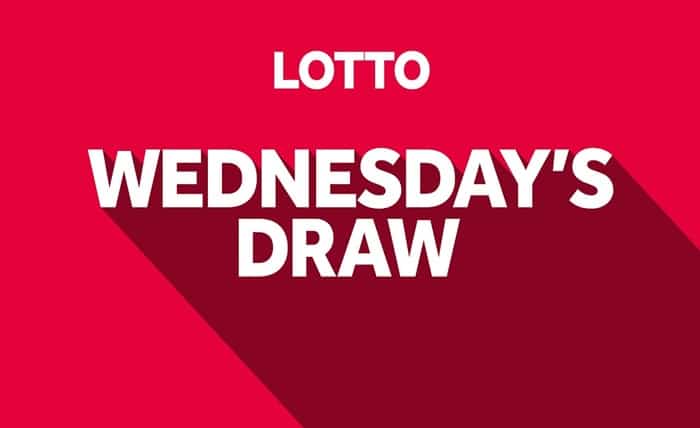Lotology Results: What They Are, How They Work, and What You Need to Know

Introduction
In recent years, “lotology” has gained attention in various fields, particularly in the context of business, market research, and even real estate. The term, though relatively new, refers to a specialized process of analysis, often related to predicting outcomes, patterns, or trends in a specific area. The results derived from this process—lotology results—offer valuable insights that can help individuals, companies, and industries make informed decisions.
In this blog post, we’ll delve deep into what lotology results are, how they are derived, their applications, and what you need to know when interpreting them. Whether you’re involved in market research, business strategy, or simply curious about this emerging field, understanding lotology results will give you a clearer picture of how predictions and analyses can shape decisions and outcomes.
The Basics of Lotology: How Lotology Results Are Generated
Lotology is an analytical approach that often combines statistical modeling, historical data analysis, and predictive algorithms. The primary goal is to produce results that can forecast potential outcomes, based on patterns observed in past data. The core of lotology results lies in understanding how various elements within a system interact and how those interactions can lead to specific outcomes.
The generation of lotology results typically involves gathering data, cleaning and processing it, and then applying a combination of machine learning techniques, artificial intelligence, or traditional statistical models. These models analyze trends, correlations, and key variables that influence the area of study, ultimately producing results that can inform decisions.
For example, in market research, lotology results could show patterns of consumer behavior, helping companies understand which products are likely to succeed. In real estate, lotology results might predict market trends, such as property values, by analyzing historical pricing data and current economic conditions.
How Lotology Results Are Used in Market Research
Market research is one of the most common applications of lotology results. By analyzing past sales data, consumer preferences, and emerging trends, businesses can derive insights that help them make decisions on product development, pricing strategies, and marketing campaigns. Lotology results give companies a clearer understanding of what consumers are likely to purchase, how much they will spend, and when they are most likely to make a purchase.
For example, a company might use lotology results to predict seasonal demand for certain products. This could help them optimize inventory management, ensuring they have enough stock to meet demand without overstocking and incurring unnecessary costs.
Lotology results can also provide insights into consumer sentiment, revealing what factors drive purchasing decisions. By understanding these trends, companies can refine their offerings, improve customer satisfaction, and boost sales.
Lotology Results in Real Estate: Predicting Property Values
In the real estate sector, lotology results are invaluable for predicting property values and market trends. By analyzing historical sales data, demographic shifts, and economic indicators, lotology results can forecast how property values are likely to change over time. This insight is crucial for investors, developers, and homebuyers alike.
For real estate investors, lotology results can help identify up-and-coming neighborhoods, areas with potential for growth, and properties that are likely to appreciate in value. These results can guide investment decisions, ensuring that money is placed in the right areas for maximum return on investment.
Similarly, homebuyers can benefit from lotology results by understanding when to buy and what kind of property is likely to offer long-term value. For instance, a predictive model might suggest that properties near upcoming transportation infrastructure projects are likely to see value increases in the coming years.
Lotology Results and Business Strategy: Making Data-Driven Decisions
In the world of business strategy, lotology results are often used to create data-driven approaches to decision-making. From sales forecasting to market expansion strategies, businesses rely on predictive models to optimize their operations. Lotology results can highlight trends that may not be immediately apparent, providing a competitive advantage in a crowded marketplace.
For example, a company launching a new product might use lotology results to estimate the potential success of that product based on historical trends in similar product categories. This allows them to fine-tune their marketing and sales strategies before launching, minimizing risks and maximizing the chances of success.
Furthermore, lotology results can help businesses manage risk by identifying potential pitfalls or obstacles that could derail a strategy. By using predictive analytics, companies can prepare for various scenarios and adjust their plans accordingly.
The Role of Lotology Results in Environmental and Social Planning
Lotology results are not just useful in business and real estate; they also play a critical role in environmental and social planning. These results can be used to predict environmental changes, population shifts, and the effects of policy changes. Governments, NGOs, and urban planners use lotology results to design more sustainable and resilient communities.
For instance, in urban planning, lotology results can help predict the impact of new zoning laws on local economies or how climate change might affect specific regions. These insights guide long-term planning, ensuring that resources are allocated effectively and future challenges are addressed proactively.
In social planning, lotology results can be used to understand demographic trends, such as aging populations or migration patterns. This data is crucial for planning healthcare, education, and housing systems that meet the needs of a changing society.
How Accurate Are Lotology Results? Understanding the Limitations
While lotology results can be incredibly insightful, it’s important to understand their limitations. Like any predictive model, lotology is based on past data and assumptions about future conditions. This means that lotology results are only as accurate as the data and models used to generate them.
For instance, if the historical data used in generating lotology results is flawed or incomplete, the predictions may be inaccurate. Additionally, unexpected events—such as economic recessions, pandemics, or natural disasters—can disrupt trends and render predictions less reliable.
To mitigate these risks, it’s essential to continually update models and data inputs. The more accurate and up-to-date the data, the more reliable the lotology results will be.
Interpreting Lotology Results: How to Use the Data
Interpreting lotology results requires a clear understanding of the model’s methodology, the assumptions it is based on, and the context in which the results are being used. While lotology results can provide valuable insights, they are just one tool in the decision-making process.
To interpret lotology results effectively, it’s crucial to work with data scientists, analysts, or consultants who are familiar with the methods used to generate the results. They can help explain the implications of the data and ensure that decisions are made based on a sound understanding of the underlying trends.
Additionally, it’s important to supplement lotology results with other sources of information, such as qualitative research or expert opinions, to get a holistic view of the situation.
Conclusion
Lotology results represent a powerful tool for understanding complex systems and making data-driven decisions. Whether you’re involved in business, market research, real estate, or social planning, these results can provide valuable insights that guide strategies and decisions. However, it’s important to understand both the potential and the limitations of these results. By using lotology in conjunction with other data sources and keeping models updated, you can make more informed, effective choices.
As this field continues to evolve, lotology results will likely play an even more integral role in shaping industries and communities, offering a glimpse into the future based on past patterns and trends.
FAQs
- What is the main purpose of lotology results?
Lotology results are used to predict future outcomes based on historical data, trends, and predictive modeling. They help individuals and businesses make informed decisions. - Can lotology results be applied to any industry?
Yes, lotology results can be applied in various industries, including market research, business strategy, real estate, environmental planning, and social planning. - How accurate are lotology results?
Lotology results are dependent on the quality of the data used. While they can provide valuable insights, their accuracy can be affected by outdated or incomplete data and unforeseen events. - Are lotology results only for large businesses?
No, lotology results can benefit businesses of all sizes. Small businesses can also use predictive models to improve decision-making and optimize operations. - How do I interpret lotology results?
Interpreting lotology results requires understanding the methodology behind the predictions and considering the context of the data. Consulting with experts can help ensure accurate interpretation and application of the results.





